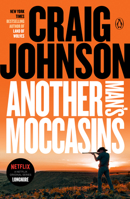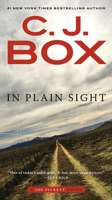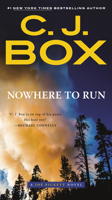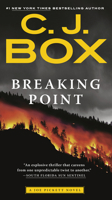Grandmaster of Demonic Cultivation: Mo DAO Zu Shi (the Comic / Manhua) Vol. 11
Select Format
Select Condition 
You Might Also Enjoy
Book Overview
Customer Reviews
Rated 5 starsJoe Pickett returns, but crop circles and animal mutilations were not what he signed up for!
A Conservation Officer may have to deal with, say, a Sasquatch sighting, but crop circles and animal mutilations? In Trophy Hunt, Joe Pickett loses more friends than he makes. Mysterious mutilations of moose and cattle, and then humans, lead him to be part of a task force to solve these crimes. The popular ticket is either aliens, birds, or bears. Joe thinks the answer is deeper and darker. CJ Box puts together another...
0Report
Rated 5 starsI love these books!
Ok, I'm from Wyoming. But I would love them no matter where I hung my hat. They are wonderful stories, full of the mountains, and sage and low oxygen air. Joe Pickett is a great character; a very likable, human personality who seems to end up in the thick of things about once a year or so. Anyone who likes mysteries would enjoy these books. I highly recommend all four. The only problem with them is that you get to the...
1Report
Rated 5 starsAnthother "Trophy" for Box!
After months of waiting, I anxiously dove into the latest Joe Pickett adventure -- Trophy Hunt. CJ Box did not disappoint this reader with his fourth story about this modern-day sleuth. Once again, Pickett takes on the bureaucracy, knows he is right and plunges ahead. With a number of well timed twists and turns, Box exposes Pickett for who he is -- an everyday guy trying to do his job against tough odds. Draped with the...
0Report
Rated 5 starsExciting fourth installment in the Joe Pickett series!
CJ Box's fourth book in the "Joe Pickett" series is an exciting and suspenseful work, perhaps the best of the series so far. Throughout the book, the suspense builds slowly but steadily around two mysterious murders and several strange cattle mutilations(so much so that I, as a reader, was feeling on edge and felt like I was there in the small town of Saddlestring, Wyoming, experiencing what was happening and wondering what...
0Report










































